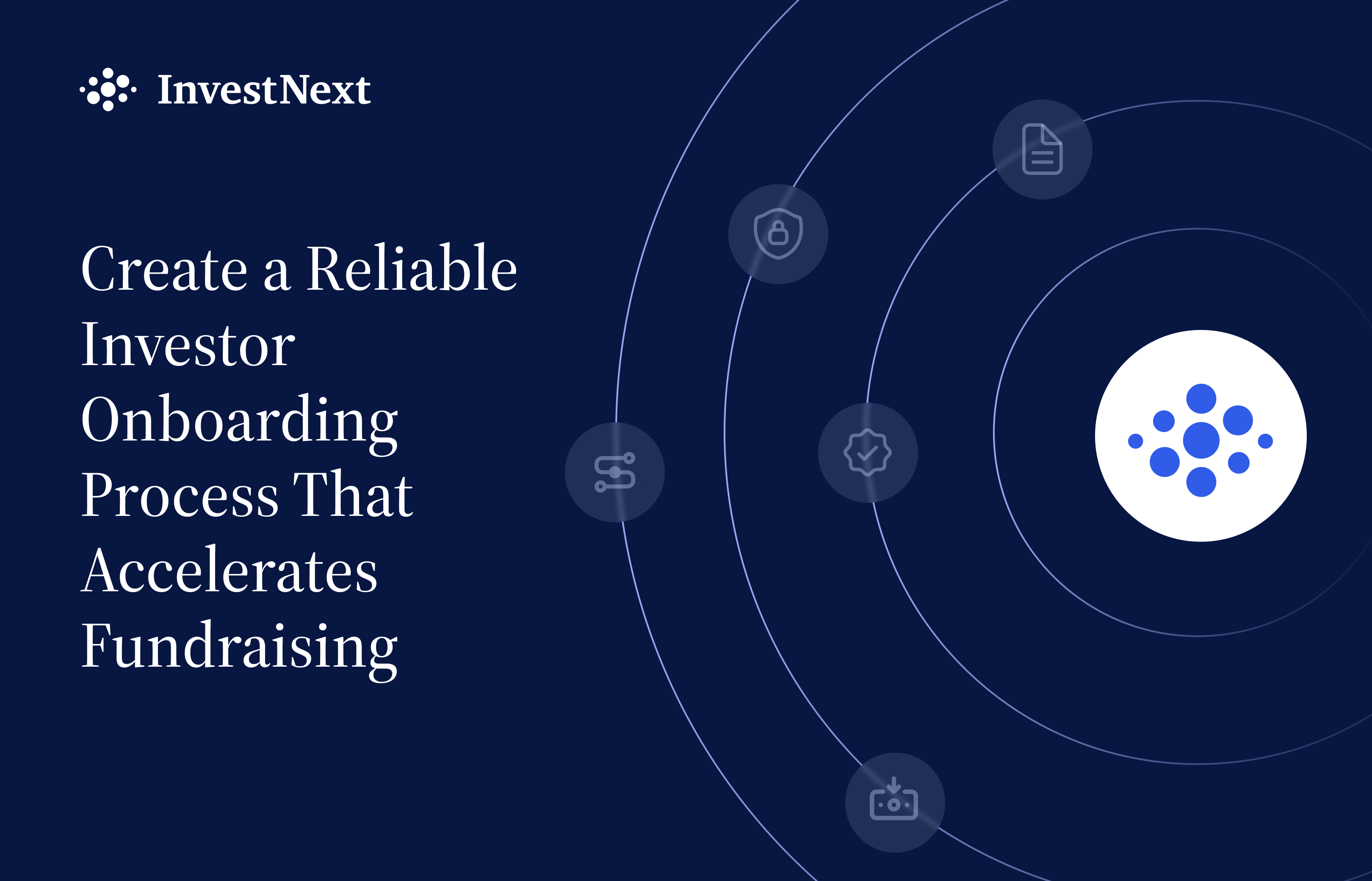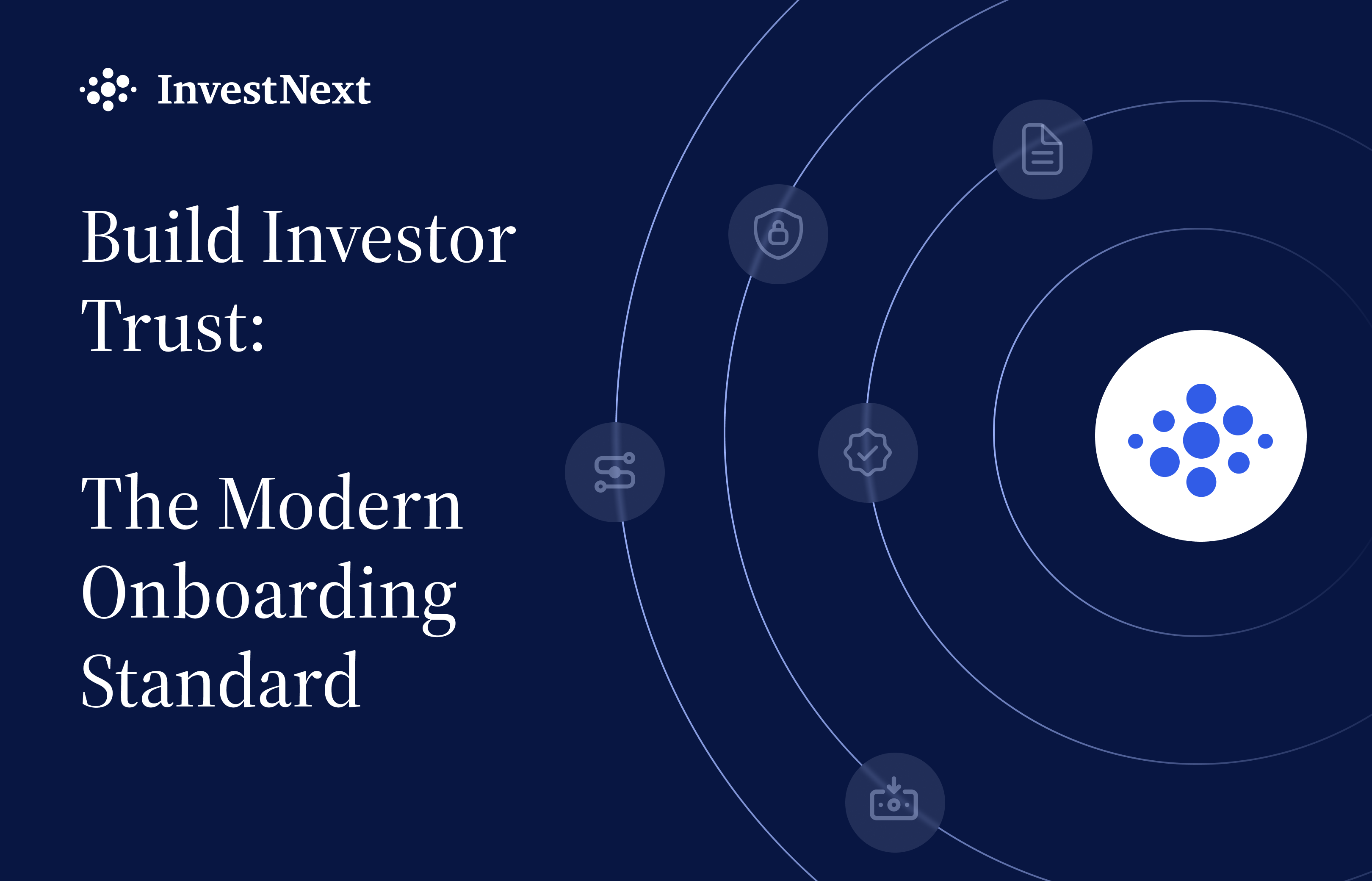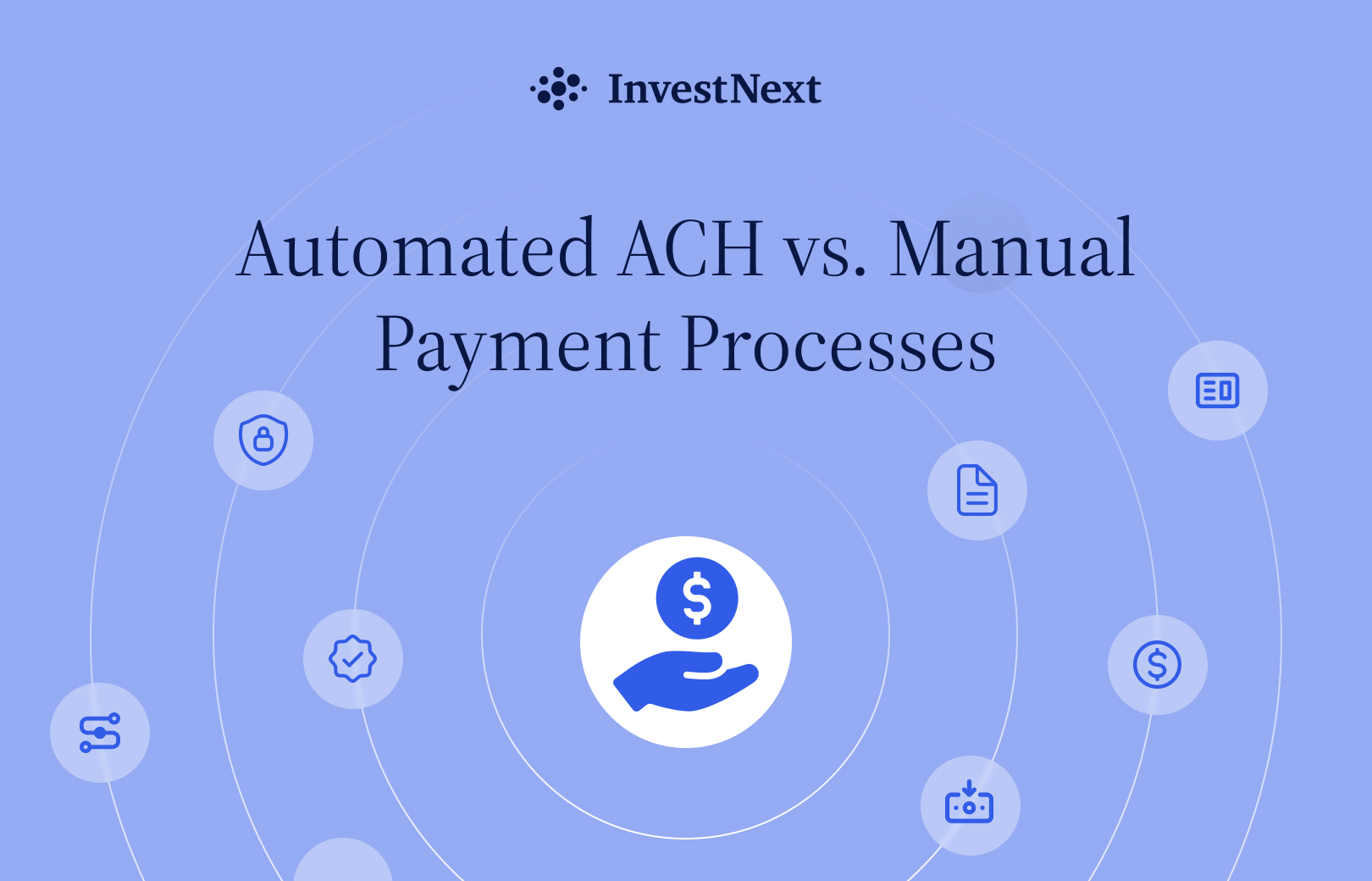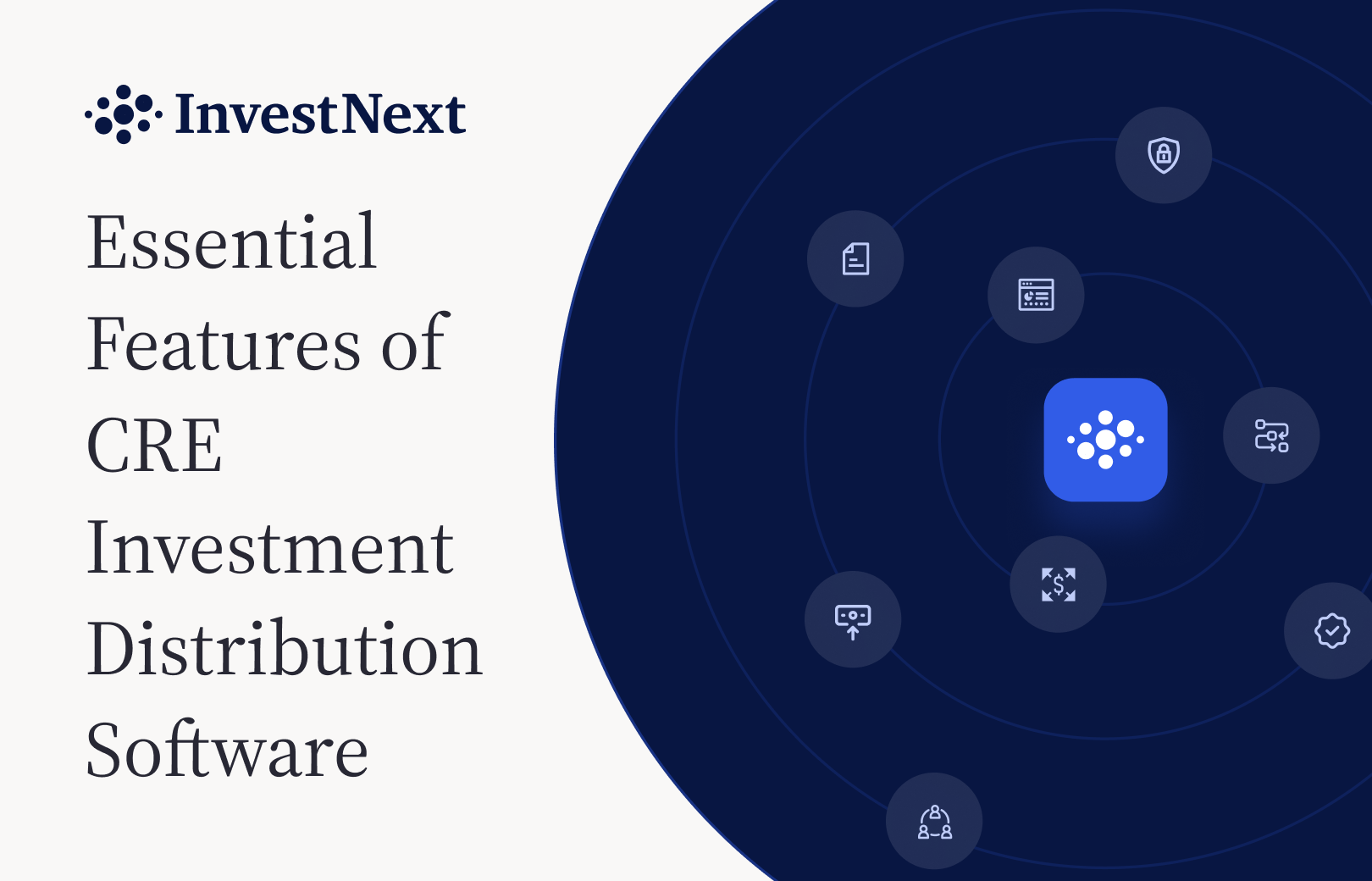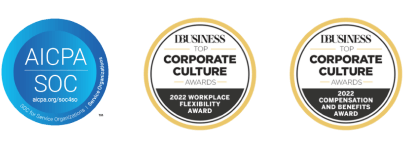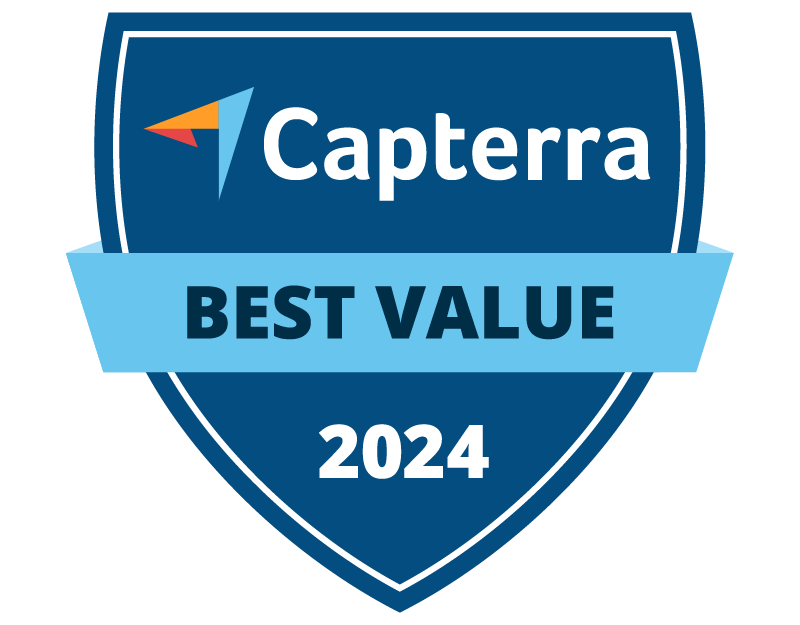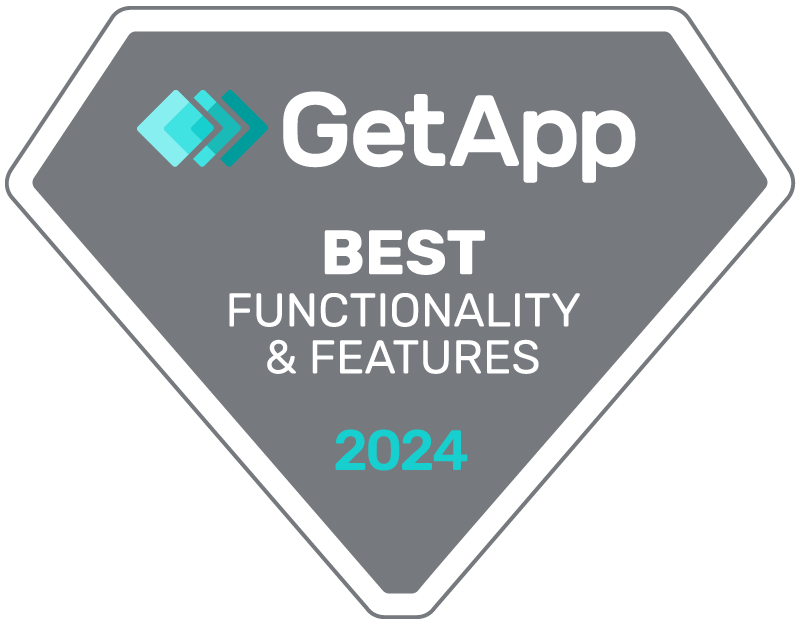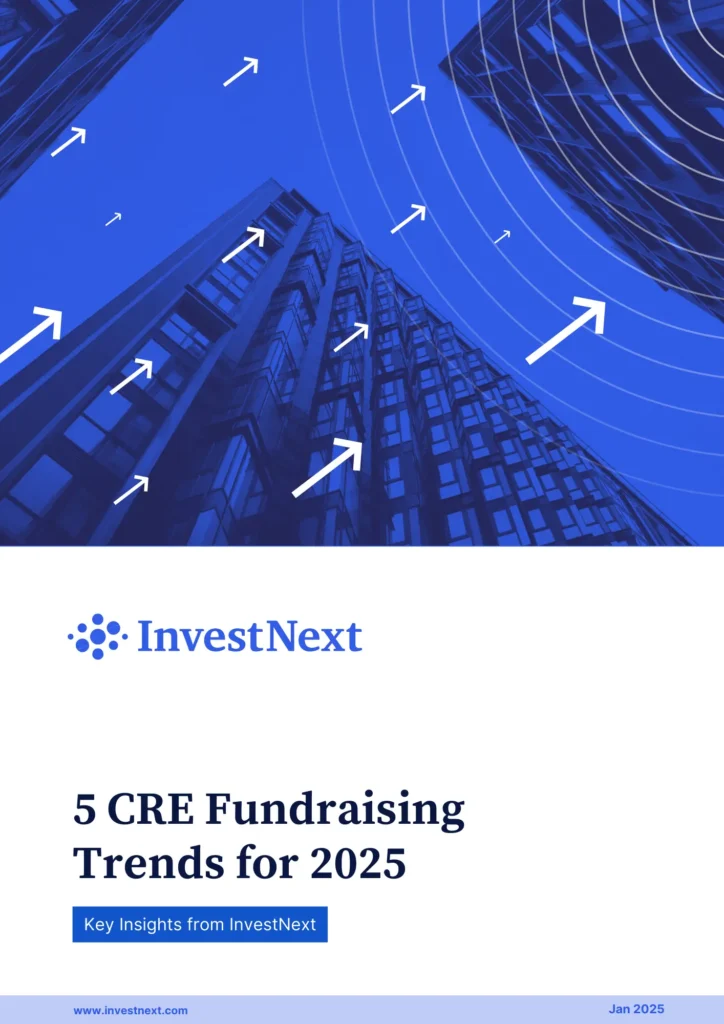Real estate fundraising cycles have nearly doubled since 2019, with the average raise now taking 24 months to complete. For emerging and mid-market firms, this extended timeline isn’t just a statistic—it’s a critical challenge that affects every aspect of their business.
Key Insights for GPs
- Every day spent on manual onboarding increases the risk of losing investor commitments
- Modern verification solutions can reduce processing time from weeks to minutes
- Firms implementing integrated onboarding see higher conversion rates on initial investor interest
- Regulatory requirements are increasing, making manual processes increasingly risky
When market conditions demand swift execution, your onboarding process can either accelerate or derail a capital raise. Many GPs can’t afford to restart a 24-month fundraising cycle because of preventable delays in document collection, verification, or funding processes.
Consider these common scenarios:
- An investor loses interest while waiting weeks for manual accreditation verification
- Compliance tasks consume resources that should focus on raising capital
- Payment delays create uncertainty about commitment status
- Document management becomes increasingly complex as investor numbers grow
Cedar Creek Capital faced these exact challenges. “Gathering accreditation documents manually took 2-3 weeks,” notes Casey Klauser, Marketing Manager. “I’m sure we lost investors because of the time it took.”
The solution isn’t just digitizing paperwork—it’s creating an integrated process that maintains momentum throughout the investor commitment journey. Forward-thinking firms are implementing connected platforms that combine secure KYC/AML verification, automated accreditation, and direct ACH funding to turn onboarding from a bottleneck into a competitive advantage.
Investor Onboarding is Evolving Rapidly
Technology isn’t just enabling trust in investment management—it’s becoming a fundamental expectation. According to the CFA Institute’s 2022 Trust Study, 87% of institutional investors say technology increases their trust in investment management.
For the first time, investors believe modern platforms and technology adoption will be a foundational requirement for their GP relationships.
This shift in investor preferences creates clear winners and losers in capital raising. Firms offering institutional-grade technology demonstrate operational sophistication, while those relying on manual processes risk being left behind.
The stakes are particularly high given recent market developments. With over $4.6 billion lost to fraudulent investments in 2023, sophisticated investors now expect robust security measures and seamless verification processes. The upcoming FinCEN requirements further underscore this trend, representing the most significant regulatory shift in over a decade.
For real estate investment firms, this evolution creates both opportunity and urgency:
- Modern technology builds immediate credibility with institutional investors
- Integrated solutions reduce friction while enhancing security
- Automated processes free teams to focus on relationship-building
- Digital platforms provide the transparency investors increasingly demand
We built our technology specifically to help firms navigate these changing expectations while accelerating their capital-raising efforts. Here are the essential components successful firms are implementing:
| Component | What It Delivers |
| Integrated Accreditation | 12-hour verification turnaround with clear audit trails |
| Digital Document Management | Error-free commitments with automated assignments |
| Inbound ACH Funding | Secure transfers up to $1M directly from commitment flow |
| Real-Time KYC/AML | One-minute verification supporting 14,000+ global ID types |
| Investor Portal Access | Branded, professional interface for document access |
| Position Management | Automated cap table updates when investors fund |
Preparing for Tomorrow’s Requirements
The evolution of real estate investment management demands more than just digitizing existing processes. As regulatory requirements evolve and investor expectations increase, firms must build resilient onboarding systems that adapt to change while maintaining efficiency.
Regulatory Readiness
Modern compliance isn’t just about meeting today’s standards—it’s about building infrastructure that scales with tomorrow’s requirements. FinCEN’s new regulations will affect more than 172,000 reporting entities starting in 2025, fundamentally changing how firms handle investor verification.
Successful firms are getting ahead of these changes by:
- Implementing integrated KYC/AML solutions that exceed current requirements
- Creating automatic audit trails for all investor interactions
- Building scalable verification processes that adapt to new regulations
“The introduction of InvestNext reshaped our approach,” notes Mike Williams, VP Investor Relations at Open Door Capital. “It provided the scalability we needed to surpass our expectations of $50 million in Capital Under Management, reaching $400 million within just four years.”
Operational Excellence in Practice
The difference between good and great onboarding often comes down to execution. Cedar Creek Capital’s experience demonstrates how proper implementation transforms operations:
Before Modern Onboarding:
- Four weeks of compliance training for new team members
- Manual verification processes consuming valuable staff time
- Limited ability to scale investor relationships
After Implementation:
- Compliance training reduced to hours instead of weeks
- Automated verification enabling focus on growth
- Scalable processes supporting portfolio expansion
This transformation isn’t just about efficiency—it’s about creating capacity for growth while maintaining institutional-grade security standards.
The Future of Real Estate Investment Operations
As fundraising cycles stretch toward 24 months, the ability to quickly convert investor interest into commitments becomes increasingly crucial. The Preqin data reveals a stark reality: firms that can’t efficiently process investor commitments risk losing momentum in an already extended fundraising environment.
Leading firms are responding by:
Enhancing Investor Confidence Through Technology
- Providing institutional-grade security from first interaction
- Enabling self-service options for routine processes
- Maintaining personal relationships supported by modern systems
Creating Scalable Operations
- Automating routine verification tasks
- Integrating systems to eliminate manual data entry
- Building processes that grow with their investor base
Protecting Long-term Relationships
- Demonstrating operational sophistication
- Ensuring consistent, professional experiences
- Building trust through transparency and efficiency
Taking Action
The path to efficient onboarding starts with honest evaluation.
Consider these key questions:
Verification Timeline
How long does it typically take to move an investor from interest to funded commitment? Cedar Creek Capital reduced their timeline from weeks to minutes—what’s possible for your firm?
Compliance Protocols
Are your current systems ready for increased regulatory oversight? Modern solutions shouldn’t just satisfy today’s requirements; they should position you for tomorrow’s standards.
Investor Experience
What do your most sophisticated investors expect? As the CFA Institute’s research shows, technology now plays a crucial role in building and maintaining trust.
Looking Ahead
The Preqin data tells a clear story: fundraising timelines have nearly doubled since 2019. In this extended environment, every day spent on manual processes is a day your competition gains ground. Firms that implement modern onboarding solutions position themselves to:
- Convert investor interest more reliably
- Scale operations without administrative burdens
- Meet evolving compliance requirements confidently
- Maintain momentum throughout extended fundraising cycles
The most successful firms understand that modern onboarding isn’t just about processing paperwork faster—it’s about creating an experience that builds confidence and maintains momentum throughout the investment process.
As fundraising cycles extend beyond 24 months, this efficiency becomes increasingly critical to success.
Ready to learn how integrated onboarding solutions can accelerate your capital raising? Schedule a demo to see how leading firms are transforming their investor onboarding experience.
